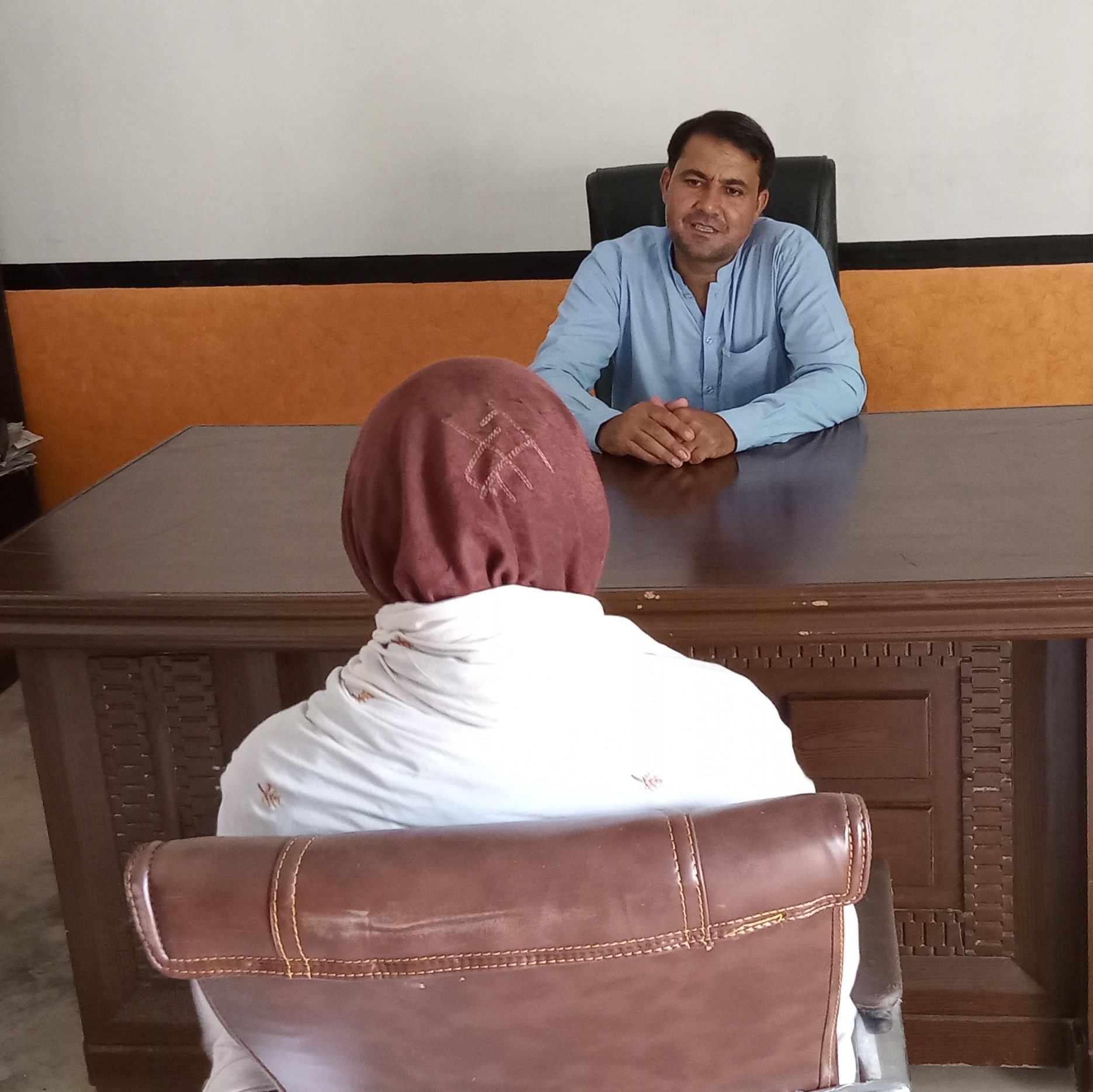Nasreen Bibi, a 19-year-old transgender person, travels approximately 27 kilometres (km) from her village in Bajaur district to the district headquarters in Khar two to three times a month, where the Department of Social Welfare is located. She is the first transgender woman in Bajaur to have registered with the Department of Social Welfare about two years ago to pursue her rights.
The registration process was not straightforward. Initially, she had to go through the procedure of obtaining a national identity card, which involved gathering documents. In the next phase, she had to enrol her name with the department. In Bajaur district, she was the first transgender woman to register. She believed that once registered, there would be government support available for employment or the rights of her community.
According to Nasreen Bibi, she visits the Department of Social Welfare office multiple times a month to engage with authorities on transgender community issues. She has often raised her difficulties in front of district officials, which included demands for employment since she has also received religious education alongside her formal education. She insists that specific jobs be allocated to transgender individuals to alleviate their financial problems.
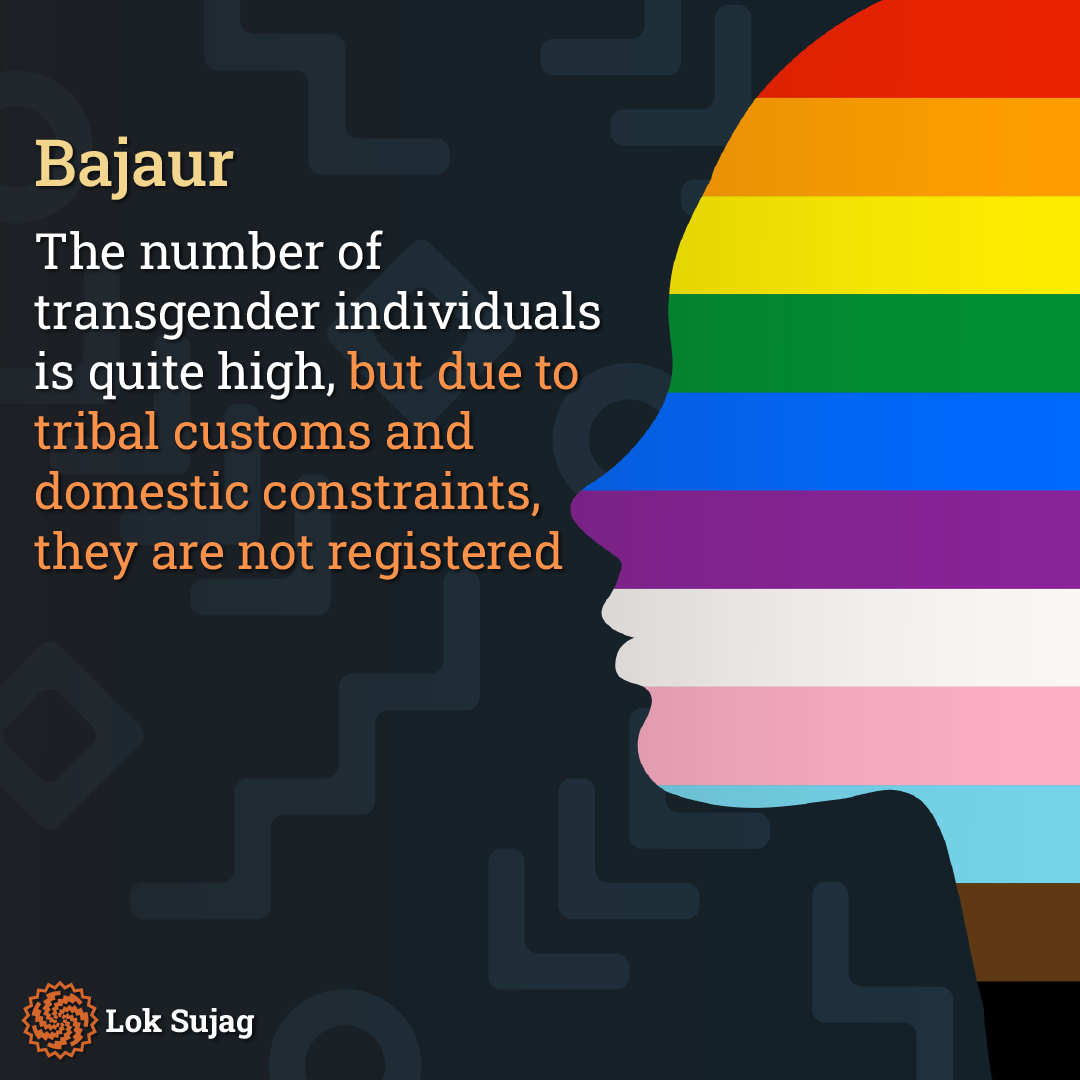
“I am running a school for children at home, where around 70 girls are learning to recite the Quran, and I do not charge any fees from them. The management and financial aspects of the school are supported by my family members, other relatives, and some people from the village,” she says.
Despite his efforts, Nasreen’s father works as a labourer, and household expenses are challenging.
Nevertheless, he managed to educate Nasreen until she reached high school. However, due to financial constraints, her education had to be discontinued.
“My sisters are also transgender, and our father has left no stone unturned in our upbringing. We are very happy about it. However, due to societal attitudes and various labels from people, they mostly spend their time at home.”
Fazal Amin, the Deputy Incharge of the Social Welfare Department in Bajaur, explains the issues related to the transgender community. He states that they held a meeting at the directorate level last year to initiate a project for the Khawaja Sara community in Bajaur, but so far, only two transgender individuals have been registered. Among them are Nasreen Bibi and her sister, Zakira Bibi.
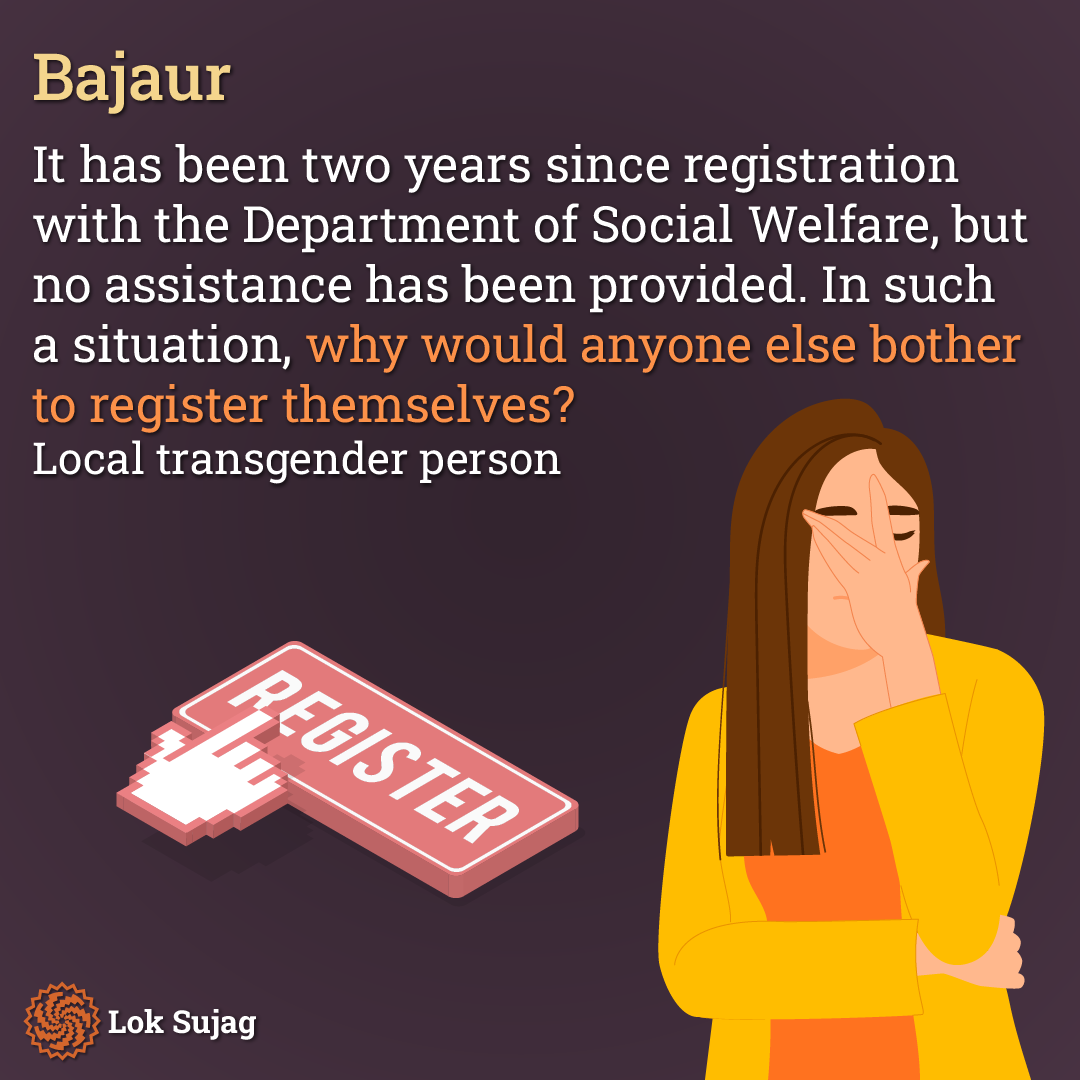
“If we consider the population according to the seventh population census, Bajaur’s population should include up to three thousand Khawaja Saras. However, due to strict tribal customs and a lack of awareness, transgender individuals do not register themselves. Once they are registered, and we have accurate data, we can start a project for their welfare.”
Fazal Amin appeals to people to encourage transgender individuals in their families to register with the Social Welfare Department so that programs can be initiated for their welfare.
Nasreen Bibi says that there are many transgender individuals in Bajaur, but they do not register due to tribal customs and domestic constraints.
Furthermore, she sees no tangible benefits of registration.
“I got registered two years ago but have not received any assistance yet. In such a situation, why would anyone else register themselves as transgender people?”
Nasreen’s father, the 50-year-old Nawaz Khan, works daily as a labourer in a mine near their village. He says that initially, they showed Nasreen and other transgender children to doctors, hoping they could be made normal through treatment. However, the doctors said they are naturally like this and cannot be treated.
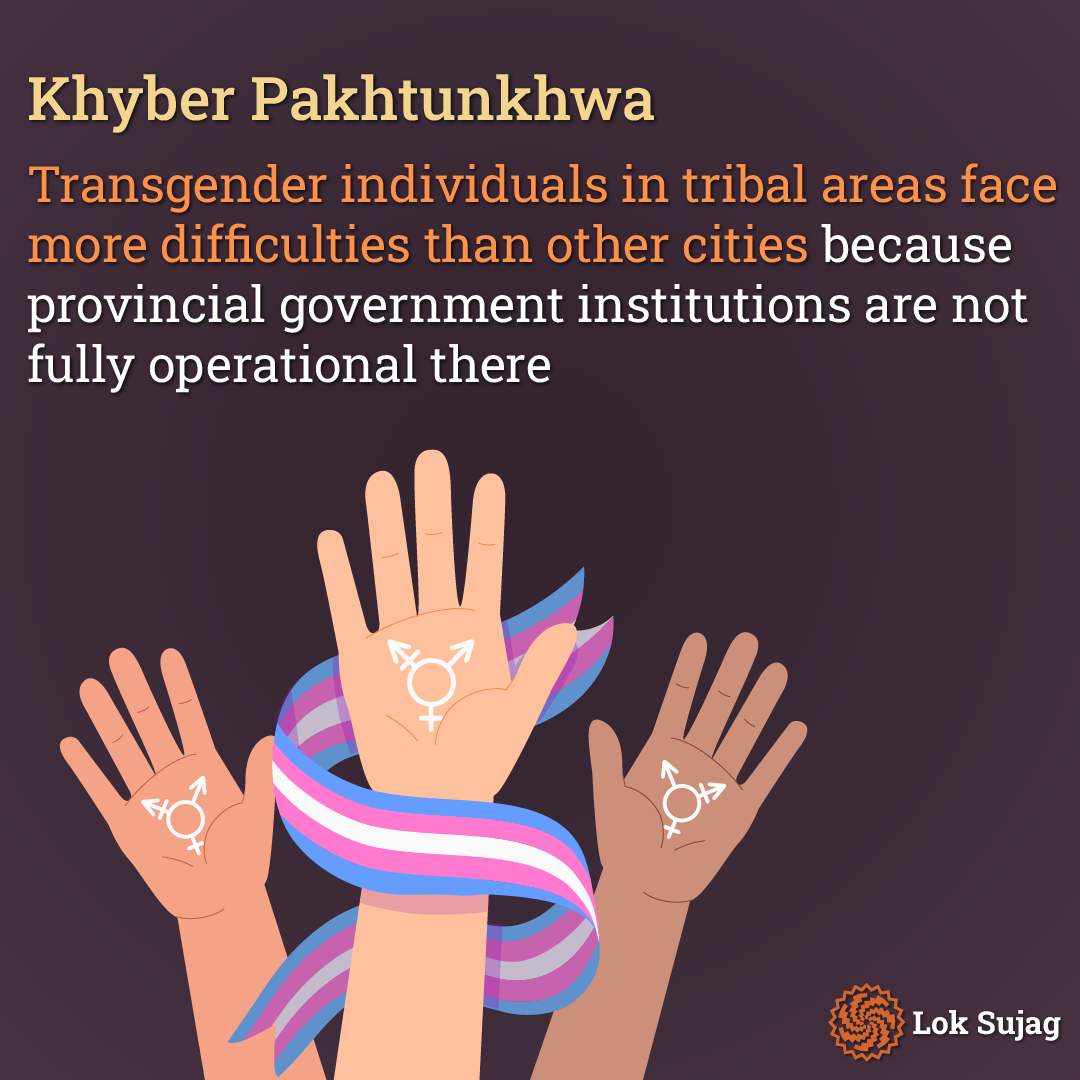
Nawaz Khan says that he has accepted Nasreen Bibi as she is, considering it a matter of fate, and they have treated her equally, regardless of her being transgender person. They view their children as normal.
“Nasreen is hardworking and motivates me and her sisters.
“She also takes sick women from the village to the hospital, helps them get identity cards in the NADRA office, and accompanies them to obtain financial assistance through the Benazir Income Support Program. She also assists in resolving their issues.”
Dr Anwar Nigar, a prominent researcher and social affairs expert with ties to Bajaur, has a deep insight into the social and societal life of the people of Khyber Pakhtunkhwa. He remarks on issues regarding the Khawaja Sara community, emphasising that there has been an increase in violence against them in recent years. One significant reason is the lack of awareness and detachment from education has given birth to intolerance. He believes that strict enforcement of laws at the government level is required to ensure their welfare.
Also Read
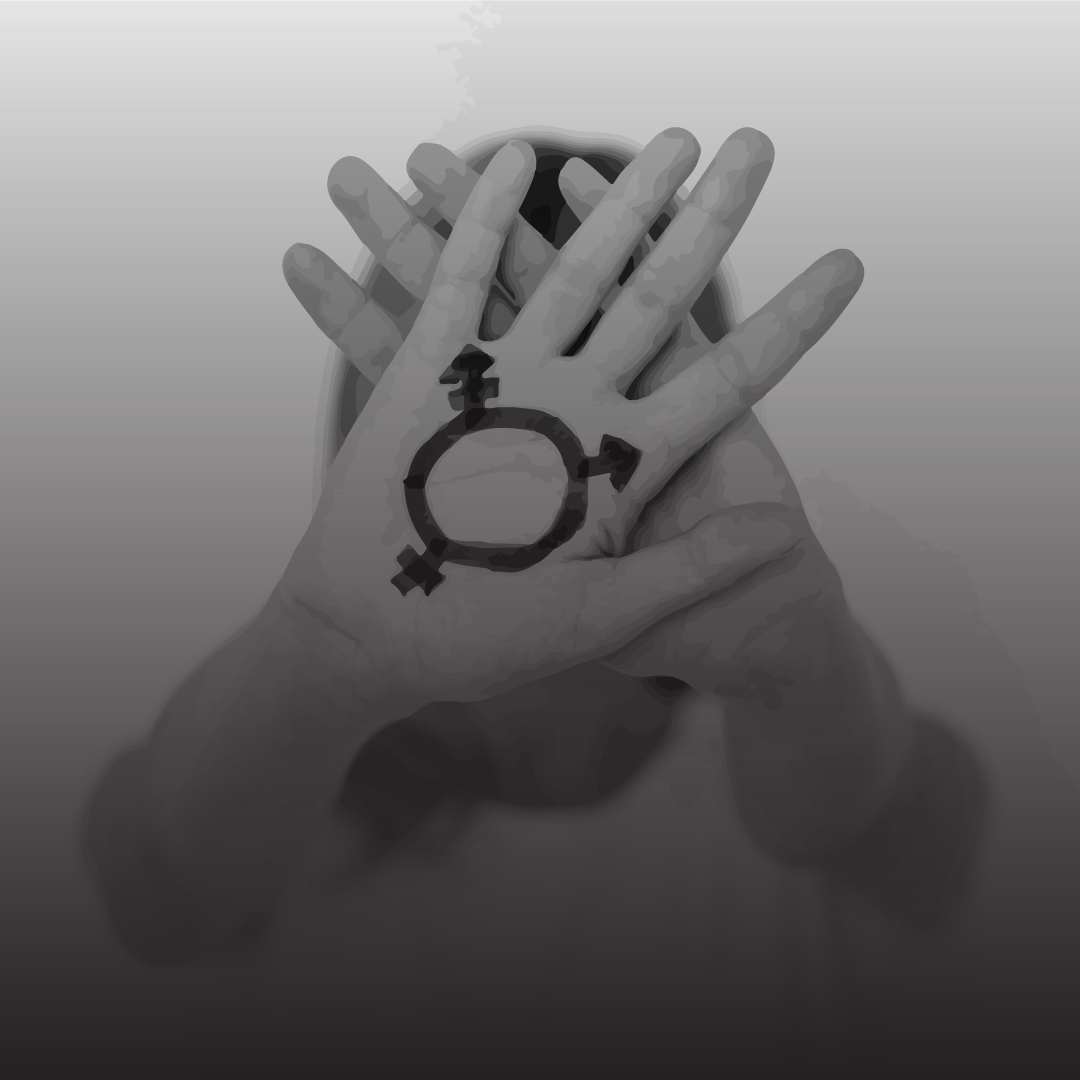
Breaking the chains of exploitation: The struggle for independence among transgender individuals in Pakistan
According to Arzu Khan, the head of the Transgender Alliance working for transgender individuals’ rights in Khyber Pakhtunkhwa, no documented data is available about the number of transgender individuals in the province, including tribal areas. This is because accurate figures have not surfaced even in the population census, and transgender individuals hide their identity due to Pashtun customs and people’s attitudes. Arzu Khan claims that there are more than 20,000 transgender individuals in Khyber Pakhtunkhwa.
She states that transgender individuals in tribal areas face more difficulties than other cities because provincial government institutions are not fully operational there, and there are also obstacles to working with non-governmental organisations.
Religious scholar Maulana Noor Muhammad Banoori believes Islam has designated a place for transgender individuals in inheritance. As other citizens have rights in the state, transgender individuals also have rights.
He says that, like sons and daughters, the upbringing of transgender children is the responsibility of parents, and society should help them become good citizens. They should not be called derogatory names, and compassion should be shown towards them, as they are also creations of Allah.
Nasreen Bibi demands that organisations and the government should provide them with the same rights as residents of other districts. They should be given employment opportunities so that the transgender community in Bajaur can feel protected and equal. She also urges those who have not registered to do so.
Published on 11 Sep 2023
